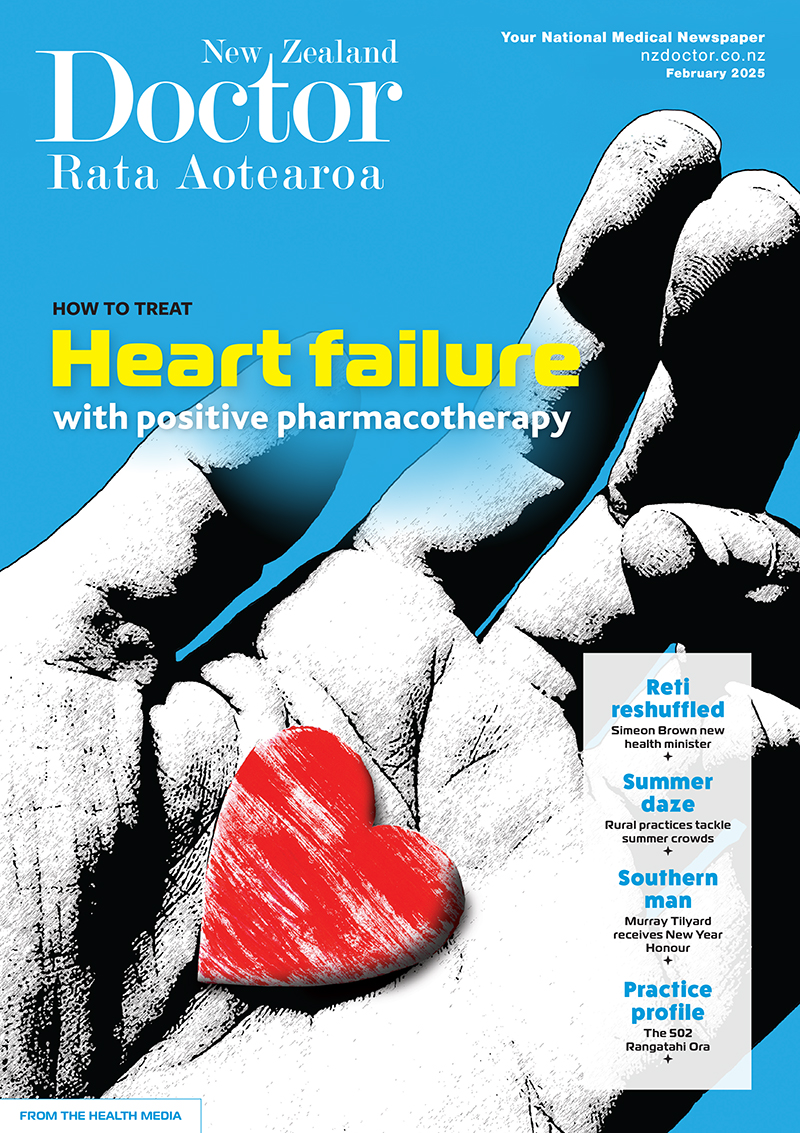Pharmacist prescribers Linda Bryant and Leanne Te Karu discuss positive polypharmacy for heart failure. Current evidence shows the intensive implementation of four medications offers the greatest benefit to most patients with heart failure, with significant reductions in cardiovascular mortality, heart failure hospitalisations and all-cause mortality
Teaching the next generation in general practice
Teaching the next generation in general practice

With a rapidly growing population, there is a growing need for primary care health services in Queenstown and beyond. General Practitioner and practice co-owner, Dr Kim Hurst, talks about why teaching the next generation is so important to her and her practice.
Dr Hurst is co-owner of The Doctors Whakatipu, one of two training practices in Queenstown. Having spent two decades as a GP in the United Kingdom and New Zealand, she is passionate about the future of general practice, and the value of teaching.
The Doctors Whakatipu will welcome two GP registrars this year, despite the number of doctors entering general practice training schemes declining. This shows the desirability of working in Queenstown.
“In 2022, when I moved from Wellington to Queenstown, I was struck by how quickly our local community was growing. I recognised the important role that training and teaching would play in recruitment to ensure the sustainability of the services we deliver to our patients. In Wellington, I taught and trained GPs for over a decade. So, in 2023 we became an accredited teaching practice.”
“If we are actively involved in teaching the next generation, we will encourage young Kiwi clinicians to experience our beautiful region first-hand rather than relying on recruiting overseas GPs who don’t always stay long term.”
“I still have fond memories of the best teachers I had through my medical career. There’s an adage in our profession, “See one, do one, teach one.” While the complexities of competency, certification and quality assurance have become more multifaceted in the modern era, the importance of passing on learnings to the next generation remains a fundamental part of my practice and something that I find great joy in doing.”
The Doctors Whakatipu is already experiencing the benefits of teaching. A former GP trainee, Dr Marycarol Holdaway, is returning on a permanent basis from February 2025.
“She is an exceptional young GP and really connected with our patients. Our patients and staff are very excited to see her coming back.”
Dr Hurst said she was also keen to bolster the training opportunities in Queenstown. Trainees in general practice require two placements at different practices of six months each and having two local teaching practices means these GPs can complete a whole year locally.
And it’s not just General Practitioners that The Doctors Whakatipu are teaching. They also provide training for Nurses who want to extend their practice as Nurse Prescribers or become independent Nurse Practitioners, as well as providing placements for medical students and nursing students.
“I’ve mentored seven Nurse Practitioners (NPs) during their accreditation process, and it’s very rewarding. They become fantastic primary care clinicians with a real blend of experience in nursing as well as capabilities in diagnostics and treatment planning. We currently have a full-time NP who brings a wealth of palliative care knowledge to our team, and a NP in training who should finish her accreditation this month.
“Our team understand the importance of being a teaching practice and they enjoy meeting the young GPs and nurses. It brings a real vibrance to our work.”
Other trainee specialists may come to the area through the Rural Medicine Training Scheme. Dr Hurst said that she would love to see them consider Lakes District Hospital or Lake Dunstan Hospital as part of their careers because that is also “a huge benefit to our community.”
Dr Hurst says the opportunity to show trainees how rewarding a career in primary care can be is critical for her specialty.
“There’s a lot in the media about the pressure that primary care is under currently. I hope that providing students with enjoyable placements will encourage them to consider primary care as a career option. I don’t want to downplay the challenges the health system is under, and it is difficult at times, but primary care remains an incredibly rewarding place to work.
“I am always grateful for choosing the specialist training route that I did 20 years ago. We hold a very privileged place in the communities we serve and no two days at work are the same.”
Dr Hurst, who is also the Virtual Care Clinical Lead at Green Cross Health, says her next focus is improving patient access to care and services.
“I enjoy seeing how we can connect with patients in different ways; to save them a trip in the car, time off work, or having to bring kids along, when all they want to do is to speak to someone about their health. Of course, we’ll still be there to see you at the practice when you want or need to come in, but it’s all about making sure people can get the care they need when, and how, they need it.”



